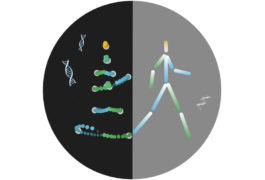Environmental risk for autism, explained
Autism results from an interplay between genetics and the environment, but it has been tough to nail down the environmental factors involved.

Autism results from an interplay between genetics and the environment, but it has been tough to nail down the environmental factors involved.

Inhibiting the social hormone oxytocin alters the songs male zebra finches sing to attract females.

New open-source software helps scientists pinpoint where electrical signals are produced in the brain.

Rats exposed prenatally to a cocktail of ‘autoimmune’ molecules have altered levels of two types of compounds needed for brain development.

A specially made ‘decoy’ protein prevents an immune molecule from crossing the placenta; the strategy may prevent the brain changes that lead to autism.

Many autism researchers express satisfaction with the similarities between the ICD-11 and the DSM-5. But some have raised concerns about ways in which the two diagnostic manuals appear to diverge.

The brain’s system for sensing pleasure and reward shows unusual activation patterns and an atypical structure in people with autism.

An expanding arcade of video games takes aim at easing autism traits, from poor visual attention to problems with motor skills. But how useful — and fun — are these games, really?

A 2013 initiative to find biological roots for mental health diagnoses still has broad appeal, but has not produced a dramatic shift in autism research.

The ability to identify human-like movements is rooted in genetics — and may share those origins with autism traits.